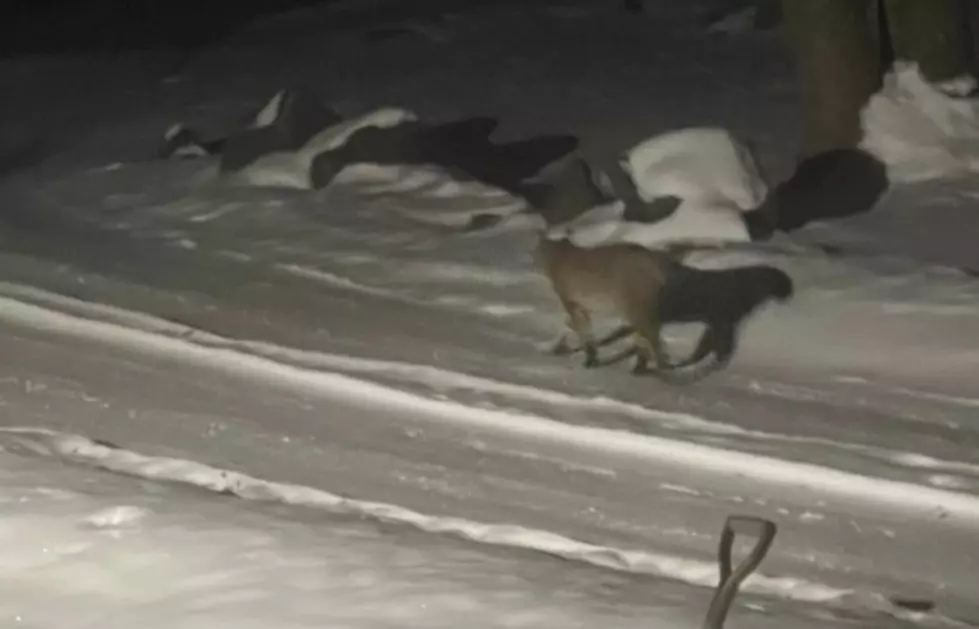
Can You Identify This Animal Prowling In West Duluth? Here’s What The DNR Has To Say
Nature is wonderful, isn't it? That is unless you find yourself encountering a predator, or they start roaming around your neighborhood. A friend of mine recently snapped this photo of what appears to be a large cat walking near their home in West Duluth early in the morning of November 18. They were able to get two photos and shared them on Facebook.

They weren't sure what exactly it was, so they asked for help identifying it. Many people guessed that it was a cougar. Others thought it might be a lynx. I reached out to a contact of mine from the Minnesota Department of Natural Resources.
Cheri Zeppelin with the DNR says it's a bobcat. Here's what she had to say.
Pretty sure that’s a bobcat. Not a very clear photo but bobcats have the white patch behind the ears like this appears to have. A lynx would have much stronger back legs with larger paws. A cougar would have a much different musculature through the body and a long, thick rope-like tail almost the length of the torso.
The Minnesota DNR says that about 2,000 bobcats live in Northern Minnesota. Very few humans see one in the wild. Bobcats feed on smaller animals like mice, rabbits, squirrels, birds, and white-tailed deer fawns.
The person who lives here, Jared, says that they have found bits and pieces of animals in the yard. They jokingly thought they had a werewolf in the neighborhood.
An adult bobcat can actually kill an adult deer by pouncing on the deer's neck from an overhanging tree limb and piercing its jugular vein with its teeth. That sounds absolutely terrifying.
So if you see a bobcat, keep your distance.
